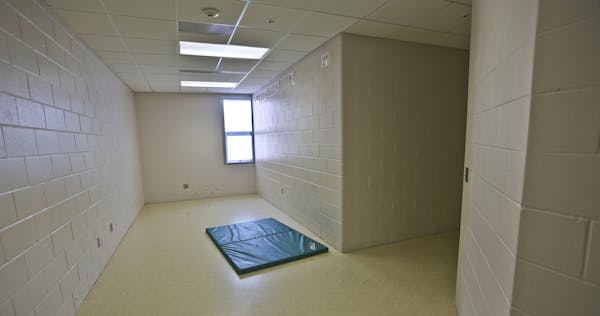From generous eligibility rules to a timid political climate, the state faces several "disincentives" that make it hard to rein in the spiraling cost of educating the disabled, Legislative Auditor Jim Nobles told legislators Wednesday.
"We do not find any easy answers or simple solutions to the complex issues involved with special education," Nobles said. "But we still strongly recommend that we keep trying to make improvements and modifications where we can, because even small steps sometimes are worth taking."
In the report, Nobles found that school districts statewide are hampered by state and federal funding shortfalls that have forced them to cover about a third of all special education costs by dipping into their general education funds. Schools districts' special ed tabs jumped 40 percent between 2000 and 2011.
Altogether, special education accounted for 20 percent of state education spending in 2011, up from 9.8 percent in 2000. Nobles urged the Minnesota Department of Education to find ways for districts to improve cost controls.
After adjusting for inflation, special education expenditures jumped by 38 percent in the past decade, reaching $1.8 billion this year. A recent Star Tribune examination of special education programs showed that students with major disabilities typically cost some districts more than $50,000 per year, or more than twice the state average, with annual expenditures topping $100,000 for some students.
Rep. Jerry Hertaus R-Greenfield, said $1.8 billion "is some really big money." He openly worried that districts could be forced to spend even more than they are now and asked if there is a way to limit the spending to, say, $1 million annually per student.
"A dollar cap ... would probably be seen as illegal," said Jody Hauer, who led the audit for Nobles' office, noting that state and federal law prohibit districts from denying services strictly on the basis of cost.
Nobles said the most obvious cause of higher expenses is the growing special education population in Minnesota, which climbed 11 percent in the past decade, reaching 111,794 K-12 students in 2011, according to the report.
That trend runs counter to national numbers, which are declining. Minnesota is one of 10 states in which the disabled population of school-age kids rose, and it had one of the highest gains.
Another likely source of higher expenses, Nobles found, was the state's tendency to create rules that extend greater protections and require more services for the disabled than those provided under federal law. Of 57 rules that govern special education in Minnesota, nearly 75 percent contained provisions that exceed federal requirements, Nobles found.
Some of those rules require districts to fill positions not required under federal rules, Nobles noted. Altogether, districts employed more than 28,600 full-time special education workers in 2011, up 25 percent from 2000, according to the audit.
Nobles said the state's open-enrollment system also has driven up costs by making it possible for parents to obtain expensive services for their children that were denied by their home districts. In 2011, almost 19,000 students — or 17 percent of all K-12 students receiving special education — attended school outside their resident districts, the report found.
Nobles recommended that legislators modify the rules requiring home districts to pay 100 percent of such costs. Gov. Mark Dayton has recommended that those costs be divided, with home districts paying 90 percent of expenses.
Such expenses can be significant. In Minneapolis, which is considering $25 million in budget cuts this year partly in response to budget pressures created by special education, other districts were paid $14.7 million last year for providing services to the district's disabled students.
'How do we unstick ourselves'?
At Wednesday's hearing, legislators acknowledged that heated debates over special education have often led to decisions that favor the disabled, even if nobody knows what such policy changes will cost or whether those changes will actually help the disabled.
"I feel properly chastened," said Rep. Carlos Mariani, a member of the House Education Finance Committee. "The auditor is saying you are not asking the big fundamental questions here. ... How do we unstick ourselves? What do we need to do?"
Education Commissioner Brenda Cassellius agreed to consider Nobles' suggestion that her department hire an outside expert to determine what cost savings could be generated by making state rules correspond to federal requirements. But she said the state should not take steps that would reduce important protections.
Cassellius will be in Duluth on Thursday to promote the governor's special education proposals, including a $125 million funding increase that would cover another 13 percent of annual costs. She will be meeting with the superintendent of Duluth schools and nearly two dozen teachers and administrators to hear their suggestions for improving special education in Minnesota.
Jeffrey Meitrodt • 612-673-4132

Trail section at one of Minnesota's most iconic spots closing for rehab

Will 'shotgun only' zone for deer in southern Minnesota be abolished?

Four Minnesotans catch salmonella in outbreak linked to basil sold at Trader Joe's

